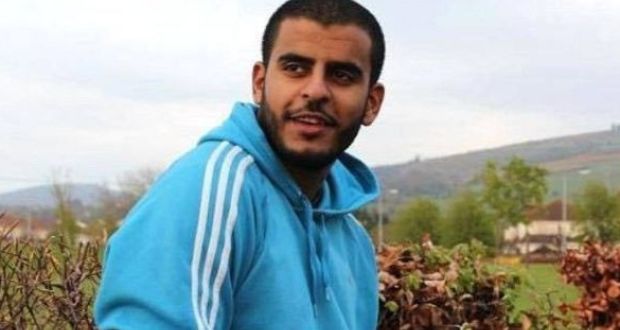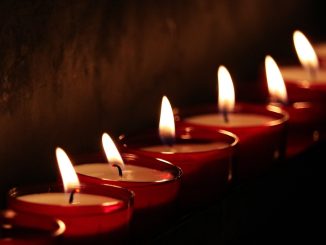
[dropcap]T[/dropcap]he world is indeed full of peril, and in it there are many dark places; but still there is much that is fair.” So says the great author JRR Tolkien. As Ibrahim Halawa spends yet another day and night in a prison cell in Cairo, unseen by the world, relinquished by his home, it is hard to equate that there is still much that is fair.
The name Halawa, while not perhaps as recognizable as the Murphy or O’Connor moniker to linguistically suggest Irishness, does belong to an Irish citizen of Egyptian extraction.
Ibrahim lived, schooled, played Gaelic, and became a young man here. He does not have pasty skin or skinny knees, and so far, this young man who was jailed at 17 years of age does not have a voice or a door out of the hell he languishes in.
In the intervening years 2013 to 2017, world events with a pointedly religious connotation have grabbed headlines. The Brussels attack March 22nd 2016; 35 dead hundreds injured. Cairo December 11th, 2016: 27 dead, up to 25 injured. The Paris attacks November 13th 2015; 130 dead hundreds wounded. The Nice attacks Bastille day 2016: deaths of 86 people, 434 injured. Westminster attack March 2017, 5 dead, 40 injured.
Ibrahim has had 20 deferred trial dates, over 1320 days’ loss of liberty.
The internet is not the farmers’ gate of years gone by where a story stood on its merit; instead many across internet forums decree Ibrahim a representative of an extremist Muslim creed which supports Sharia law and hopes in time, to radicalize the world, and impose a global Islamist empire under the Muslim brotherhood. The Muslim Brotherhood is an extremist organization founded in Egypt in 1928 and is viewed as a Anti-sematic social movement.
Ibrahim was a frequent visitor, with his sisters to Egypt to visit his family, and there is no denial that his sisters up to the time of the 2013 trip had used active voices in support of the Muslim Brotherhood. Plenty of placards have been held aloft in conflicts the world over without the result being a desire for carnage. However, the strongest shadow of doubt on Ibrahim, seems to fall from his father Imam Hussein Halawa, religious leader of Clonskeagh Mosque and also General Secretary of the European Council for Fatwa and Research (ECFR), which is based at the Islamic Cultural centre of Ireland (ICCI).
Many suggest Hussein Halawa is the uppermost representative of the Muslim Brotherhood in Ireland, and his ties to the ECFR means he is, at least in a professional capacity, familiar with Yusuf Al-Qaradawi, the Muslim Brotherhoods religious leader. Al-Qaradawi is not allowed entry to Ireland, France, the UK or the USA due to his extremist’s views.
Brid Smith TD, feels the position held by Ibrahim’s father is largely irrelevant to Ibrahim’s plight: “There are hundreds awaiting the same mass trial, not all of whom necessarily have relations in academic circles or any connections even to the Muslim Brotherhood. Regardless of who his father was, Ibrahim cannot receive just treatment or a fair trial. Let us be clear, this was a bloody coup, there was and has been massive violations of human rights by this regime and it is largely being ignored by the West and indeed by our own government. We seem more concerned by our beef trade with this regime than with these abuses and the continued unjust imprisonment of this young man.”
Smith notes that if Ibrahim were called Sean and was not from an Islamic background: “This Government would have made more efforts or adopted a stronger position when dealing with the Egyptian state.”
Footage purporting to show Ibrahim and his sisters speaking to a huge crowd during protests, suggest his involvement was pre-ordained, that alone does not make him guilty of a wrongdoing. This is indeed reminiscent of the internment in the north of Ireland in the 1970s Ireland.
Roderic O Gorman Green Party councillor and lecturer of Law in DCU says: “Ibrahim’s ongoing detention is disgraceful, and the risk he remains under in a trial scheduled with 100s of other detainees calls into question his ability to get justice from the Egyptian legal system”
O Gorman further points out that Egyptian authorities have for three years been unable to hold a trial, even though they claim that they are ready to go to trial. There are legal implications also to consider regarding how he is being treated while he is in prison.
“Despite a verbal commitment from the Egyptian authorities that Ibrahim will be released to Ireland following his trial, there is nothing legally binding to make this happen.”
Ibrahim, according to those who know him, was a character, larger than life full of energy and ready to embrace the world, a 17-year-old on the crest of a life filled with possibilities.
The world is indeed full of peril, perhaps none more so than the folly of youth or the perception of the sins of the father.
- Despite a request on Free Ibrahim Halawa social media sites, no replies were forthcoming at the time of article going to press.
Orla O Driscoll



